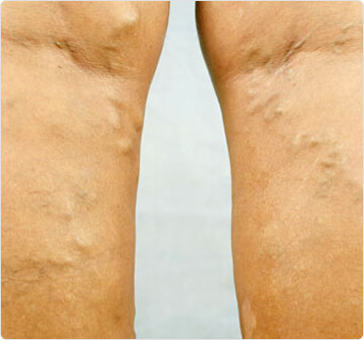Venous Disease

Until you notice varicose or spider veins, you probably never gave much thought to your veins. For many people, varicose and spider veins are cosmetic issues. But for some, varicose veins can cause great discomfort and pain. In the DC metro area, Dr. Shawn Howell at Capitol Cardiovascular Specialists can evaluate your condition and recommend a treatment plan to get rid of your varicose veins and alleviate your symptoms.
Varicose Veins
Varicose veins are contorted and expanded veins that often affect the legs and feet. Blood travels in one direction through veins – toward your heart – and valves prevent blood from going backwards. However, when valves fail, blood begins to collect within the veins rather than going forward toward your heart.
The reason that legs and feet are so commonly affected is because they are the farthest from the heart, and gravity makes it difficult for blood to travel upward.
Spider Veins
Spider veins are smaller than varicose veins. They are often red, purple, or blue vessels that resemble spider webs. Spider veins are closer to the surface of the skin than varicose veins and may develop on the face as well as the legs. They are typically harmless, unless they cause discomfort.
Symptoms of varicose and spider veins may include:
- Dark purple and dark blue veins
- Twisted and bulging veins (varicose)
- Aching legs
- Throbbing, cramping
- Restless legs
- Itching near the veins
Aging is a risk factor for developing varicose veins and spider veins, because the valves in your veins tend to weaken with age. Lifestyle factors such as sun exposure, obesity, and inactivity play a role in the development of venous conditions.
Varicose and spider veins tend to run in families; nearly half of people with varicose veins have at least one family member that is affected by them.
Hormonal changes from taking birth control pills, puberty, and menopause can also increase your risk for varicose or spider veins. Many women develop venous issues during pregnancy from hormonal changes and the increase in blood flow, which causes veins to enlarge.
There are several treatment options for varicose veins, including microphlebectomy, endovenous ablation, and sclerotherapy. Dr. Howell will typically order a venous duplex ultrasound to determine which treatment is most appropriate for your condition.
If you have painful varicose or spider veins, you should seek treatment from a board-certified vascular specialist. Request an appointment online with Dr. Howell at one of our metro DC offices today or call (202) 466-3000.